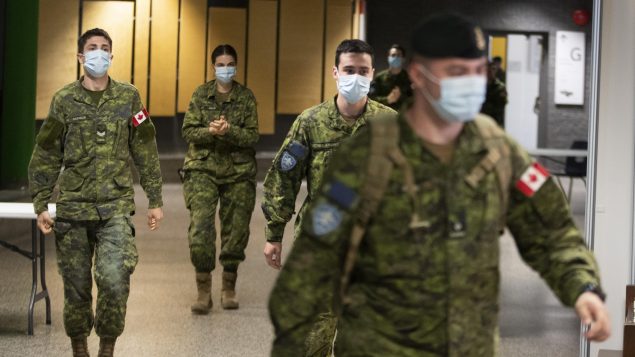The federal government says it will offer retroactive hazard pay to compensate thousands of Canadian soldiers who have been deployed to virus-stricken long-term care and nursing homes in Quebec and Ontario.
The Canadian military has deployed thousands of soldiers to nursing homes in Canada’s hardest hit provinces to reinforce regular staff overwhelmed by deadly COVID-19 outbreaks in dozens of facilities.
Eligible Canadian Armed Forces members deployed in these nursing homes and long-term care facilities, who were or still are at risk of exposure to COVID-19 due to their duties, will receive the allowance the $78 per day Exceptional Hazard Allowance.
It is expected that approximately 4,500 Candian Armed Forces members will be eligible to receive this allowance, officials said.
“From the earliest days of the pandemic, our troops stepped up, as they always do, despite the risk to their own health and safety,” said Defence Minister Harjit Sajjan.
“This Exceptional Hazard Allowance is one way we can recognize the significant efforts and risks faced by Canadian Armed Forces members, who have worked hard to keep our family members and loved ones safe during this challenging time.”
As of June 18, 50 soldiers – 36 in Quebec and 14 in Ontario – had been infected by the virus that causes COVID-19, according to the military.
In addition, Canadian soldiers deployed in the long-term facilities face the physical hardship of spending all of their shifts wearing the full complement of Personal Protective Equipment for up to 12 hours a day and without appreciable breaks in service, the military said.
Moreover, many of the women and men have served in these facilities for months, while being away from their families during a highly challenging time, officials said.







For reasons beyond our control, and for an undetermined period of time, our comment section is now closed. However, our social networks remain open to your contributions.